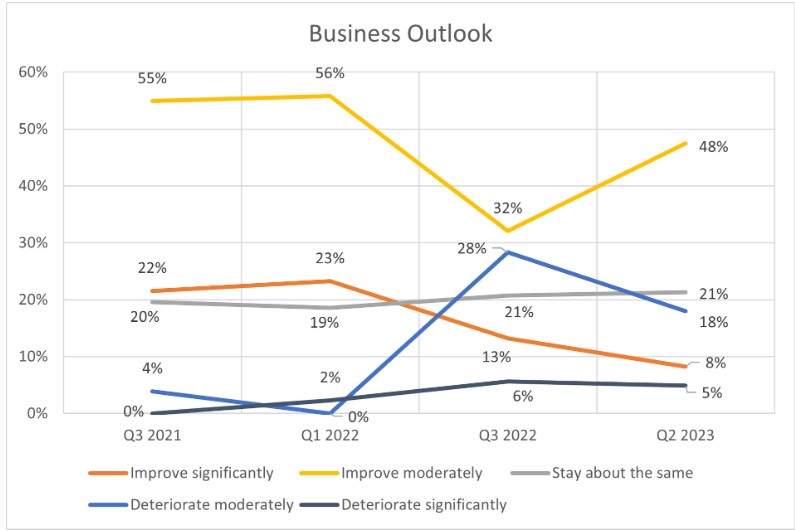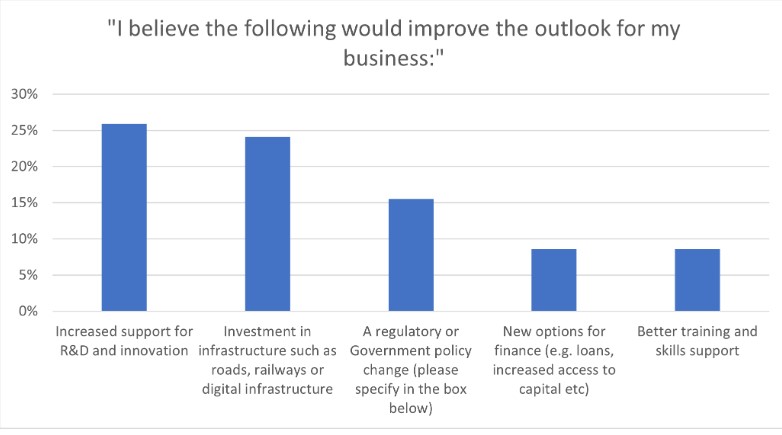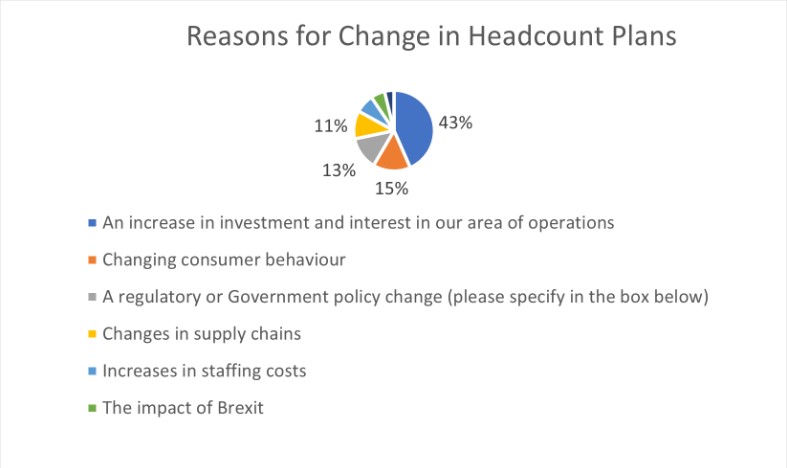
Tech Nation, the growth platform for tech scaleups which recently announced it would be closing its doors after losing out on government funding to Barclays Eagle Labs, has published its final Tech Nation Report: How to build a scaleup.
The report explores conditions for growth created over the last decade, what tech companies can do to react to these conditions, and what needs to happen in order to accelerate the future growth of UK tech and maintain strength on a global stage.
The report seeks to explore three key areas related to the growth of the UK tech industry:
The Conditions for Growth:
The report examines the conditions that have been created over the past decade that have supported the growth of the UK tech industry. This includes factors such as access to talent, capital, and supportive government policies, as well as the growth of tech clusters and ecosystems across the UK.
Reacting to Conditions:
The report also examines what tech companies can do to react to the conditions that have been created. This includes strategies for growth, such as developing new products and services, expanding into new markets, and building strong partnerships and collaborations.
Supporting Future Growth:
Finally, the report looks at what needs to change in order to support UK tech companies to accelerate their growth in the future. This includes policies to support access to talent, continued investment in research and development, and a focus on building strong and diverse tech ecosystems across the country.
Overall, the report aims to provide insights and recommendations for the UK tech industry and the wider ecosystem to continue to support growth and success in the years to come.
“The last decade of UK tech has been explosive; growth has been unprecedented, and the positive economic impact created by founders has been almost unimaginable,” Dr. George Windsor, Data and Research Director at Tech Nation said.
“As UK tech continues to mature, we must take every opportunity we can to collectively re-imagine, and change ecosystem conditions for the better. In the Tech Nation Report 2023, we argue that this should take the form of addressing access to finance, boosting diversity, and prioritising value realisation. Tech is at an inflection point, with a profound opportunity for future growth, and a number of both headwinds and tailwinds to get there.”
UK startups raised $30.8bn in 2022. This is down from the heights of 2021 when funding peaked globally, however is still 72% higher than the 2020 total.


The UK's position as a leading tech ecosystem is certainly not guaranteed, and there are several emerging ecosystems that could pose a threat in the coming years. India has already overtaken the UK in VC investment, and other countries like Indonesia and Mexico could also challenge in the future.
It's worth noting, however, that the UK remains the dominant player in Europe, with investment into startups and scaleups continuing to exceed that of France and Germany combined. Nonetheless, this dominance is not guaranteed, and without the right support mechanisms and conditions, the UK could fall behind.
The fact that France, Italy, and Sweden have seen positive investment growth after the record Covid bounce-back year of 2021 is significant, especially when compared to the UK's decrease in investment of 24.7% - its highest decrease in five years. France, in particular, has consistently experienced positive growth in investment over the past decade.
Overall, it seems that the UK's tech ecosystem is facing increasing pressure from both emerging ecosystems and its European neighbors. While it still holds a strong position, it will need to continue to innovate, attract investment, and create favorable conditions to remain competitive in the years ahead.
Stephen Kelly, Chairman at Tech Nation commented: “The Government needs to develop a plan that creates the environment and platform for UK tech to be the rocket fuel for growth in the economy and address some Achilles heels of the UK economy. The opportunity for UK Government with the impact of tech-enabled innovation, machine learning and automation has huge potential for all industries from Agriculture to Waste Management with a massive productivity boost where currently the UK languishes at the bottom of G7 productivity league. The opportunity is ours to take.”
Diversity in UK
It is concerning to hear that some ethnic groups and women are still heavily underrepresented in the UK tech industry. As Elizabeth Scott MBE highlights, diversity is critical to the growth and success of the tech ecosystem.
It's promising to see companies like Marshmallow, a Tech Nation alumni company founded by a Black entrepreneur, achieving unicorn status and recognition as one of Europe's fastest-growing companies. This shows the potential for outsized growth by backing underrepresented founders who are best placed to execute on disruptive opportunities.
However, it's clear that there is still much work to be done to improve diversity in the tech industry. The fact that no European country achieves a proportion of 30% women in the tech workforce is concerning, and the gender pay gap in tech roles is also troubling.
Addressing these issues will require a concerted effort from across the industry, including initiatives to attract and retain diverse talent, providing training and development opportunities, and creating a culture of inclusivity and equity. By doing so, the UK tech industry can tap into the full potential of its talent pool and drive continued growth and success.
Edinburgh is the city with the most women in tech, followed by Newcastle and Cambridge – all three are above 30% versus the UK’s average of around 25% of the workforce.

The proportion of people from underrepresented ethnic groups working in tech has increased over the last five years, but by less than +2%, highlighting continued inequality of access to tech roles.
Scott continued: “While the data shows that some progress is being made, it’s slow and we all know that UK tech still has a lot of work to do. As well as doing more to support under-represented founders access the support and funding they need, as an ecosystem we still need better visibility and access to tech jobs. Achieving representation in the UK tech workforce would give everyone a seat at the table, enabling changes to the way businesses are run, new ideas and value creation.”
Tech Nation's recommendations to achieve the target of a £3.25tn ecosystem value are essential to ensure that the UK can become a forward-facing technological and scientific superpower. It's not enough for the government to espouse this rhetoric; it must be paired with policies and support mechanisms that fuel conditions for growth. Here are the three recommendations:
- Firstly, it's crucial to plug patient capital into all stages of company growth, not just at the early stages. To achieve this, there must be 15x investment in deeptech and climate tech by the end of the decade to stimulate and sustain growth. Addressing gaps in access to finance for UK startups and scaleups could contribute up to £365bn in additional value to the UK tech ecosystem over the next decade.
- Secondly, there needs to be a rethinking of talent gaps and an emphasis on opening up access to tech opportunities for all people. Initiatives such as Colorintech are making significant strides to make tech accessible and fair, but more must be done to support underrepresented people as founders and employees. Addressing gaps in access to talent for UK startups and scaleups and reducing inequalities in access to opportunities in tech for underrepresented people could contribute up to £325bn in additional value to the UK tech ecosystem over the next decade.
- Lastly, it's essential to prioritize value realization. Tech leaders in the UK must develop a Silicon Valley-like sense of exit intentionality, and capital and talent must be efficiently recycled through the ecosystem to create additional value. Knowledge must be deepened and shared around late-stage growth. Enabling high-value exits and providing augmented support to founders to realize the value created by their companies could contribute up to £447bn in value to the UK tech ecosystem over the next decade.
Overall, these recommendations highlight the need for a holistic approach to drive growth and create a truly world-leading tech ecosystem in the UK. By implementing these actions, the UK can unlock the potential of its tech talent, create jobs, and drive economic growth for years to come.